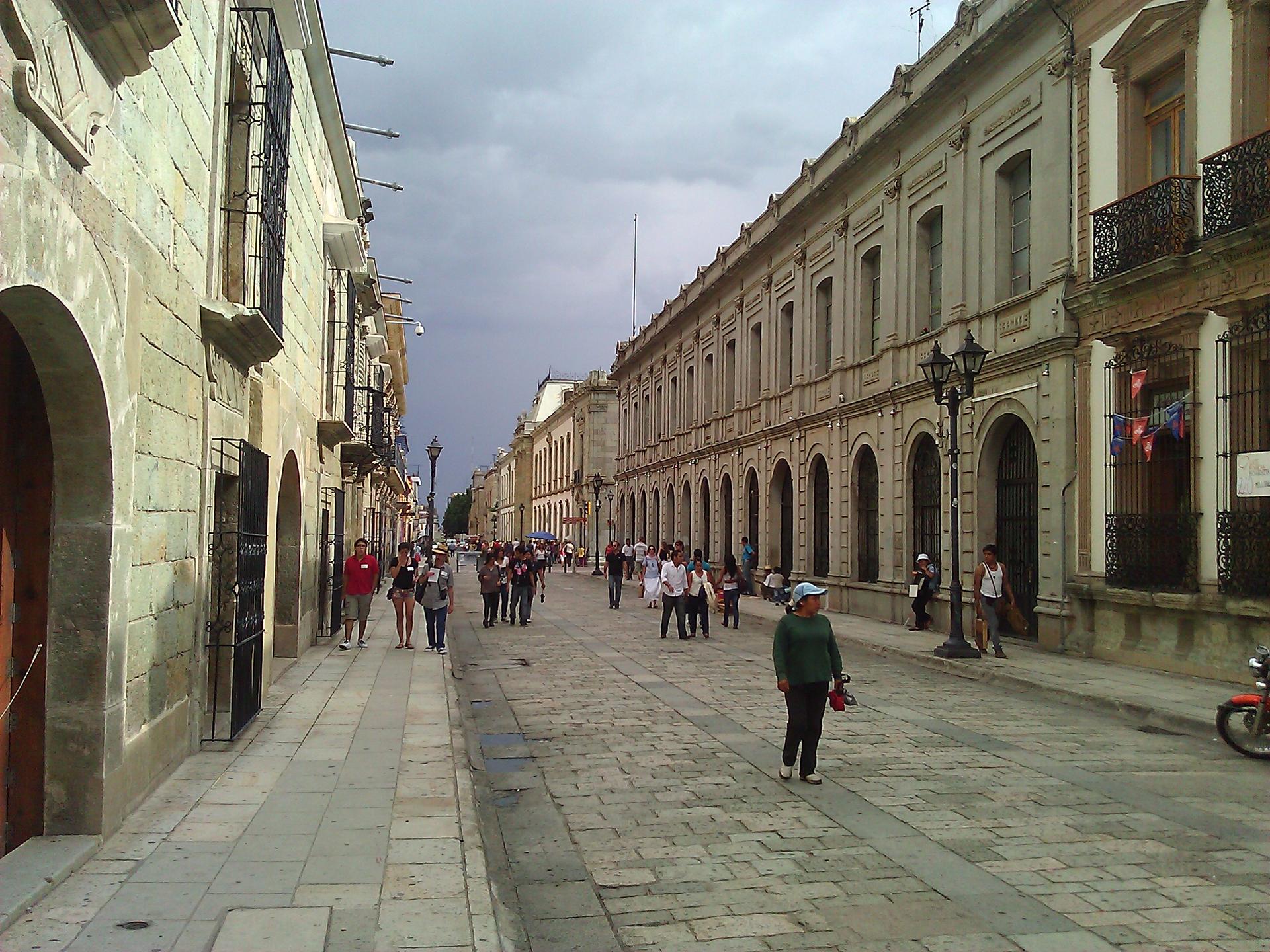Horacio Ocon, an Argentine tourist who’s been visiting the city of Oaxaca in southern Mexico with his family, woke up one morning with a headache. His throat burned. He smelled smoke.
“I couldn’t breathe. It was really intense,” he said.
He followed the smoke to a heap of trash burning in a huge metal waste bin nearby. “It was really thick smoke. And I was surprised that they were burning it so close. It was terrible. A ton of trash and, in particular, plastics,” he said.
Since early October, burning trash has become the main means of disposing waste for the roughly 700,000 residents of Oaxaca and the surrounding municipalities. That’s around the time when the city closed its trash dump.
In the days following lively Day of the Dead celebrations in early November, the evening skies turned an apocalyptic orange, as smoke from the burning leftover trash tinged the air.
Mayor Francisco Martínez Neri has told residents in several announcements that he’s working hard to find a solution. He hopes to acquire land for a new trash dump and, in the meantime, he’s asking residents to sort their organic waste and recycling in order to reduce trash.
But Oaxacans say solutions should have been implemented years ago.
“The only answer is to open the dump back up,” lawyer and environmentalist Eduardo Reyes Santiago said last week.
“Because for years, they have not taken the necessary measures. Today, you have this bomb that’s going off.”
Meanwhile, trash is building up. The city of Oaxaca alone generates 1,000 tons of trash a day, which triples during its tourist season. But trash collection has been suspended since early October.
On Nov. 4, the trash collector’s union protested the situation by dumping truckloads of garbage across the city’s historic center and inviting residents to do the same.
Videos, like this one, have been shared widely over social media, showing mounds of garbage piled up in front of government buildings.
“We are fighting for the citizens,” a union representative told a local news outlet.
“They’ve been the most impacted. It’s been over three weeks. And months before the dump was closed, we knew what was coming, but nothing was done.”
This is particularly relevant as the world’s leaders discuss the big picture at COP27, the United Nations’ global climate conference meeting in Egypt this week.
“This is a sign on a small scale that government actors aren’t worried about issues related to the environment,” said Ingrid Sánchez , a Mexican journalist who has been following the situation in Oaxaca closely. “Above all, when there are financial costs.”
Open waste burning produces 11% of global emissions of black carbon, a fine particulate that significantly contributes to global warming.
But today in Oaxaca, much of the trash that isn’t burned is ending up polluting the local environment.
“I live close to a river. And now everyone is dumping their trash there,” said Abril Villegas Garcia, an 18-year-old street vendor in the municipality of Tlalixtac, which shared the trash dump with the state capital Oaxaca.
“Maybe burning impacts the environment, but it’s better than just dumping it,” she said. “The river is really bad now. It’s really polluted. And the mentality of many people is just to keep making it worse.”
In an agreement with the city, trash collectors have now cleaned the city center and begun to collect garbage on one side of town. But there’s still no place to put it. The municipal government says it’s shipping some waste out of state. It’s also begun dumping trash at a former factory in the neighborhood of San Juan Chapultepec.
On Nov. 10, residents responded by protesting and blocking roads. It is clear there is little end in sight to the problem.
“The people are being forced to do what we did before. Burn trash. Burn plastic. The pollution is getting worse. People are throwing it all on the outskirts of the city, into the rivers. A lot of people are tired. So, they are leaving it in the streets,” said Jesús García Santiago, who runs a convenience store to the east of the city.
“We have no answer from the local government. … But we also need to be conscious about all of the trash that we produce and consume.”
